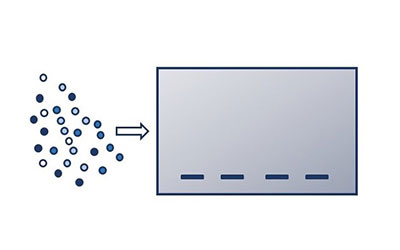Lysates


Cell lysates are a commonly used sample source in Western blotting, a technique for analyzing specific proteins in complex mixtures. Cell lysates contain a mixture of proteins that are extracted from cells after lysis. Lysis is typically performed by physical (e.g. ultrasound) or chemical methods (e.g. detergents such as RIPA buffer) that disrupt cell membranes and release the intracellular proteins.
To prepare a cell lysate for Western blotting, the amount of protein in the sample is quantified, often using an assay such as the BCA or Bradford test. The proteins are then separated by size using SDS-PAGE (Sodium Dodecyl Sulfate Polyacrylamide Gel Electrophoresis). After electrophoretic separation, they are transferred to a membrane (e.g. PVDF or nitrocellulose), which is prepared for the specific detection of the target proteins.
Antibodies that specifically bind to the protein of interest are used to detect the target protein. Cell lysates are particularly useful as they represent the full range of intracellular proteins and allow endogenous protein levels, modifications (e.g. phosphorylation) or protein-protein interactions to be studied. They are an indispensable tool in molecular and cell biology.
All prices plus VAT + possible delivery charges
